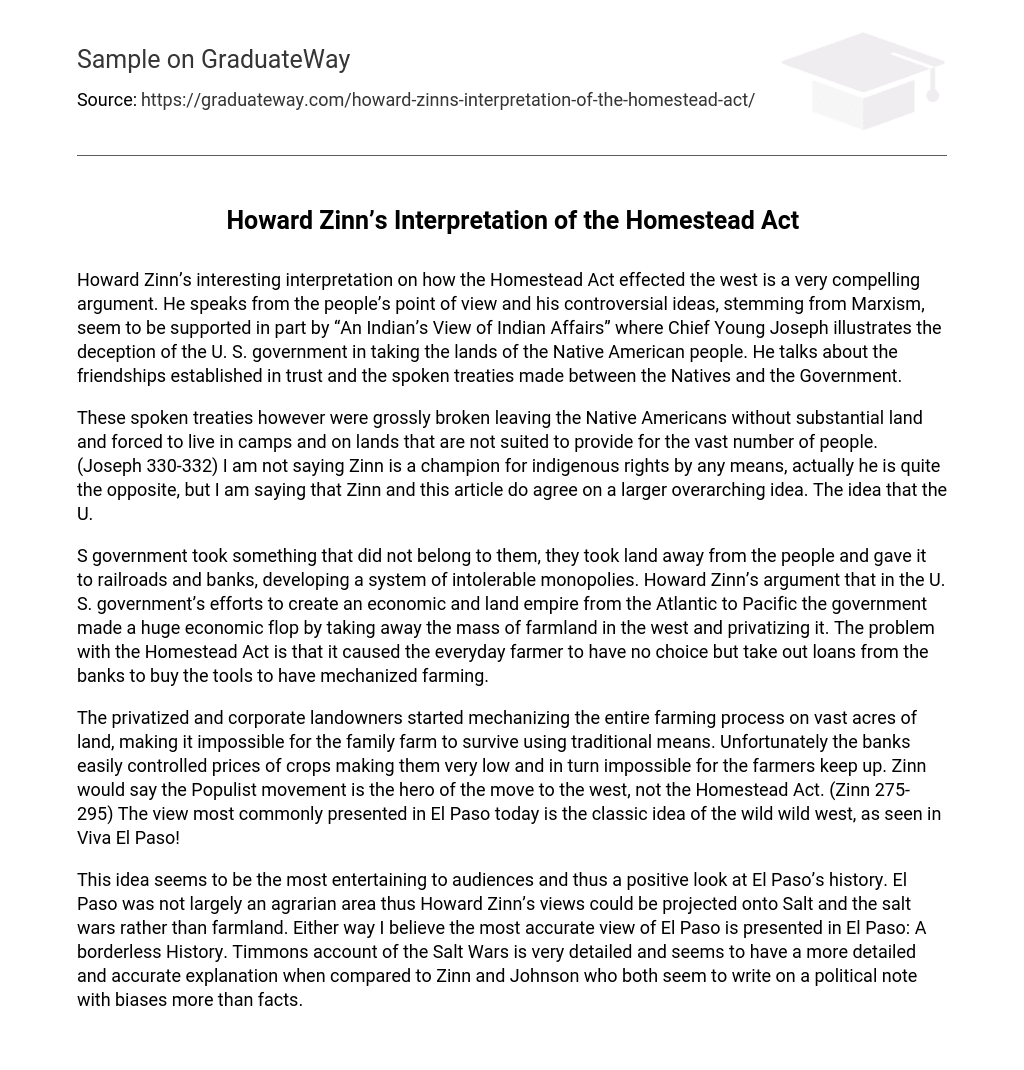Howard Zinn presents a compelling argument regarding the impact of the Homestead Act on the western region. His interpretation, influenced by Marxism, offers an intriguing perspective from the viewpoint of the people. One can find support for Zinn’s controversial ideas in Chief Young Joseph’s account titled “An Indian’s View of Indian Affairs.” In this narrative, Chief Young Joseph exposes the deceptive actions of the U.S. government in confiscating Native American lands. He emphasizes the trust and friendships forged through spoken treaties between the Native Americans and the government.
The Native Americans were left without substantial land and were forced to live in inadequate conditions due to the violation of spoken treaties. (Joseph 330-332) While Zinn is not portrayed as a advocate for indigenous rights, he and this article share a common belief in a larger overarching idea. This idea emphasizes the fact that Native Americans faced unjust treatment and hardships.
According to Howard Zinn, the US government seized land from the people and allocated it to railroads and banks, resulting in the establishment of monopolies. Zinn argues that the government’s attempt to create an economic and land empire by taking away farmland in the western region and privatizing it was a major economic failure. The Homestead Act aggravated this issue as it forced farmers to rely on bank loans to purchase mechanized farming tools.
The Family farm was unable to survive using traditional means due to the mechanization of farming by privatized and corporate landowners on vast acres of land. Additionally, the banks easily controlled crop prices, keeping them very low and making it impossible for farmers to keep up. According to Zinn (275-295), the hero of the westward movement was the Populist movement, not the Homestead Act. However, in El Paso today, the prevailing view is still that of the classic wild wild west, as depicted in Viva El Paso!
This concept appears to be the most captivating for viewers and therefore offers a positive perspective on the history of El Paso. El Paso was not primarily an agricultural region, so we can apply Howard Zinn’s viewpoints to Salt and the salt wars instead of farmland. Regardless, I believe the most precise portrayal of El Paso is found in “El Paso: A borderless History”. Timmons provides a highly comprehensive account of the Salt Wars, which appears to offer a more detailed and precise explanation compared to Zinn and Johnson. Both Zinn and Johnson tend to write with political biases rather than presenting facts.





